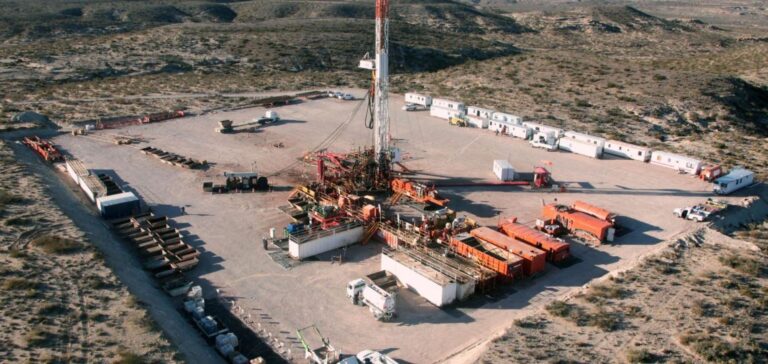The Vaca Muerta field, located in Argentina, reached a new record in oil production in the third quarter of 2024, with an average of 400,000 barrels per day (bpd). This increase represents a 35% growth compared to the same period last year. According to Rystad Energy’s analysis, this impressive progress is driven by continuous improvements in productivity and increased hydrocarbon takeaway capacity.
A dynamic driven by YPF and independents
The Argentine state-owned oil company Yacimientos Petrolíferos Fiscales (YPF) played a key role, generating 55% of Vaca Muerta’s total oil production during the quarter. YPF’s revenues increased by 7% compared to the previous quarter, reaching $5.3 billion. Independent producers, such as Vista Energy, also made significant contributions, particularly through the Bajada del Palo Oeste field, which accounted for more than 20% of the growth. The Bandurria Sur and Loma Campana-Loma La Lata fields, operated by YPF, were also central to this increase.
Massive investments in energy infrastructure
To support this expansion, Argentina is investing in critical infrastructure. The $2.5 billion Vaca Muerta Sur pipeline was designed under the Large Investment Incentive Regime (RIGI). This infrastructure aims to increase takeaway capacity and facilitate the transport of hydrocarbons to international markets. Meanwhile, the expansion of the Nestor Kirchner pipeline optimizes domestic gas transport, reducing energy dependency and opening up prospects for liquefied natural gas (LNG) exports.
The central role of Vaca Muerta in the national energy strategy
Vaca Muerta is now an essential element of Argentina’s energy strategy. With 35% of oil production and 23% of gas production coming from independent producers, the diversity of players is an asset for stability and growth. This trend extends to natural gas, where fields operated by companies such as Pluspetrol, Tecpetrol, and TotalEnergies have contributed to a 23% annual production increase.
Seasonal challenges and strategic acquisitions
However, gas production shows seasonal variations, notably with reduced activity during the summer. The third quarter saw the commissioning of only 15 new gas wells, compared to 27 in the previous quarter. Strategically, Pluspetrol has recently consolidated its position in the region by acquiring ExxonMobil’s assets, significantly increasing its exploitable reserves.
With production potential targeting 1 million barrels per day by 2030, Vaca Muerta positions itself as a key driver of Argentina’s energy independence and economic growth.






















